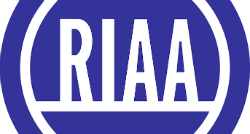After more than two decades of declining fortunes, 2021 was a blockbuster year for global recorded music revenues.
With a growth of 18.5% on the previous year and revenues of $25.9 billion, 2021 marked a return to levels last witnessed pre-Napster in the late 1990s. Nevertheless, more than 20 years later the music industry is still fighting piracy but against a relatively new enemy – YouTube-ripping services.
By enabling users to access tracks on YouTube and convert them to MP3 downloads, tools like youtube-dl and sites including Yout, flvto and 2conv are all embroiled in lawsuits involving the IFPI and RIAA, both in the United States and further afield.
That being said, there are always more targets for the major labels and two more have just appeared on the radar.
RIAA Filed Complaints With Cloudflare
In emails dated March 29, the RIAA informed Cloudflare that “users of its system” are engaged in copyright infringement so help is needed to track them down.
“We have a good faith belief that this activity is not authorized by the copyright owner, its agent, or the law. We assert that the information in this notification is accurate, based on the data available to us,” the emails read.
The RIAA emails to Cloudflare reference two YouTube-ripping style platforms – mp3download.to and 320ytmp3.com. According to SimilarWeb stats, the former’s traffic ranges between 3.5 million and 6 million visits per month. The latter, on the other hand, is a much more popular resource.
In December 2021, January and February 2022, the site pulled in between 53 million and 61.8 million visitors per month. Almost 30% of users came from the United States with the UK, Canada and India occupying the rest of the top slots. That makes 320ytmp3.com one of the most popular sites of its type online today.
Cloudflare Won’t Do Much Without a Court Order
The RIAA’s emails asked Cloudflare to take immediate action against both platforms in respect of specific links cited in the RIAA’s complaints, which reference songs by Wham! and Chicago, among others. The emails also ask Cloudflare to “consider the widespread and repeated infringing nature” of the sites in light of the CDN provider’s repeat infringer policy.
In reality, though, the RIAA wants something more valuable.
Given that Cloudflare won’t give up its customers’ details without authorization, this week the RIAA also filed a DMCA subpoena application at a California court. Listing the same musical works, the music industry group requested an order to compel Cloudflare to hand over the personal details of those behind the two sites, including their names, physical addresses, IP addresses, telephone numbers, email addresses and payment information.
The court quickly signed off on the application, meaning that Cloudflare is now required to hand over information to the RIAA so that its inquiries can be taken to the next level. Whether Cloudflare holds any useful information remains an open question since sites are known to sign up to the service using fake details.
However, even in the absence of direct legal action against either of the platforms, there is still a strong chance that one or both will appear in future court-ordered ISP blocking injunctions, mostly actioned by ISPs outside the United States.
The RIAA has recently filed DMCA takedown notices against 320ytmp3.com with the aim of removing the site’s links from Google search. Many more have been filed with Google by the BPI in the UK (1,2,3,4,5,6,7) which could be a sign of an upcoming High Court application.
Emails to Cloudflare and the DMCA subpoena application can be found here (1,2, pdf)







